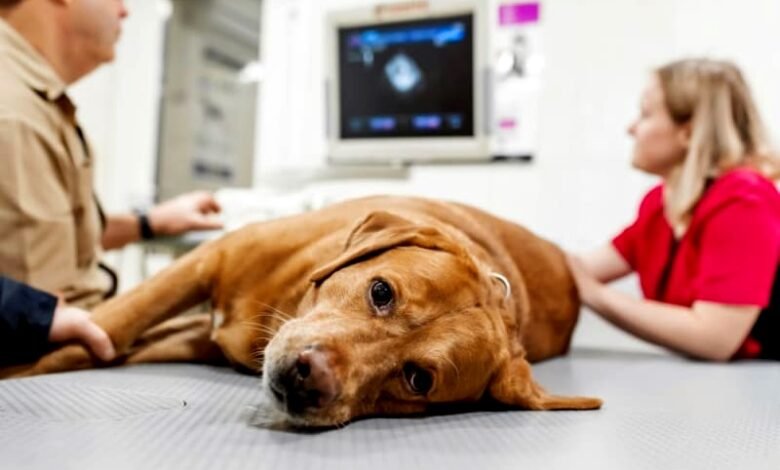
Bordetella in Dogs
As a responsible dog owner, it is crucial to be aware of various health concerns that can affect our furry companions. One such common issue is Bordetella, a highly contagious respiratory infection that can affect dogs of all ages and breeds. In this article, we will delve into the details of Bordetella in dogs, including its causes, symptoms, treatment options, and preventive measures.
Read More: The Benefits of Annual Heartworm Testing
What is Bordetella?
Bordetella, also known as kennel cough, is a bacterial infection caused primarily by Bordetella bronchiseptica. It is called kennel cough because it spreads rapidly in places with high dog populations, such as boarding kennels, dog parks, and animal shelters. The bacterium attacks the respiratory system, leading to inflammation of the trachea and bronchi, resulting in a persistent, dry cough.
Causes of Bordetella in Dogs
Bordetella is highly contagious and can spread through the air when an infected dog coughs or sneezes. Dogs can contract the bacteria by inhaling the infected respiratory secretions from an infected dog or by coming into direct contact with contaminated surfaces, such as food and water bowls, toys, or bedding.
Symptoms of Bordetella in Dogs

- Persistent Coughing: The most common symptom of Bordetella is a dry, harsh cough that may sound like honking. The cough can become more frequent and intense, especially during physical activities or when the dog gets excited.
- Nasal Discharge: Infected dogs may have a runny nose with clear or slightly colored discharge.
- Sneezing: Frequent sneezing may accompany the cough as the body tries to expel the irritants.
- Lethargy: Dogs with Bordetella may appear less energetic and show signs of fatigue.
- Loss of Appetite: The infection can cause a temporary loss of interest in food.
- Fever: Some dogs may develop a mild fever as their body tries to fight off the infection.
Diagnosing Bordetella
If you notice any of the symptoms mentioned above in your dog, it is essential to visit a veterinarian for a proper diagnosis. The vet will perform a physical examination and may take a swab or sample from the dog’s respiratory tract to identify the presence of Bordetella bacteria.
Treatment for Bordetella in Dogs
Treatment for Bordetella typically depends on the severity of the infection. Mild cases may resolve on their own, but in more severe instances, the veterinarian may prescribe antibiotics to combat the bacterial infection and alleviate symptoms. Additionally, cough suppressants and anti-inflammatory medications may be administered to provide relief from the persistent cough.
Preventing Bordetella in Dogs
Prevention is always better than cure, and there are several steps you can take to reduce the risk of your dog contracting Bordetella:
- Vaccination: Ensure that your dog’s vaccinations are up-to-date, including the Bordetella vaccine. This vaccine is available in injectable, oral, and intranasal forms.
- Avoid High-Risk Areas: Limit your dog’s exposure to places with a high concentration of other dogs, especially if there have been reports of kennel cough outbreaks.
- Maintain Hygiene: Regularly clean and disinfect your dog’s belongings, such as toys, bowls, and bedding, to minimize the risk of contamination.
- Isolation: If your dog shows symptoms of kennel cough, keep them away from other dogs to prevent the spread of the infection.
Read More: Why Can’t My Cat Stop Coughing?
FAQs (Frequently Asked Questions)
- Can Bordetella in dogs spread to humans? Bordetella bronchiseptica, the bacterium responsible for kennel cough, is primarily a canine pathogen and is unlikely to affect humans. However, people with weakened immune systems or pre-existing respiratory conditions should exercise caution when around infected dogs.
- How long does it take for Bordetella to run its course in dogs? The duration of Bordetella infection can vary depending on the dog’s overall health and the severity of the infection. In mild cases, symptoms may subside within a week, while more severe cases may take several weeks to resolve.
- Can dogs be carriers of Bordetella without showing symptoms? Yes, some dogs may carry the Bordetella bacteria without displaying any symptoms. These dogs can still spread the infection to other susceptible dogs.
- Is the Bordetella vaccine effective in preventing kennel cough? While the Bordetella vaccine is not 100% effective, it can significantly reduce the severity and duration of the infection if a vaccinated dog does contract kennel cough.
- Should I keep my dog away from other dogs after they have recovered from kennel cough? After your dog has fully recovered from kennel cough, it is safe to reintroduce them to other dogs. However, always practice good hygiene and take preventive measures to avoid future infections.
Conclusion
Bordetella, or kennel cough, is a contagious respiratory infection that can affect dogs of all ages and breeds. Being aware of the causes, symptoms, treatment, and prevention measures is essential for every dog owner. If you suspect your dog has Bordetella, consult a veterinarian for proper diagnosis and treatment. By taking preventive measures and staying vigilant, you can help keep your canine companion safe and healthy.








One Comment